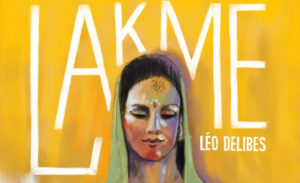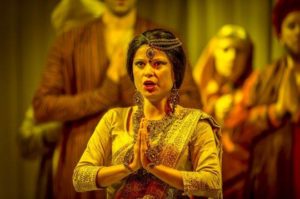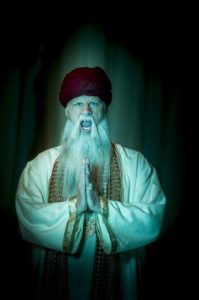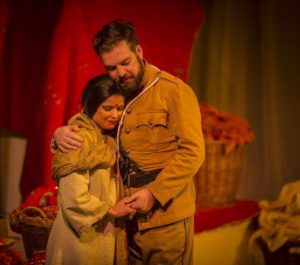
 (3 / 5)
(3 / 5)
The opera Lakmé is possibly best known for the popular Flower Duet, composed by Delibes as a showcase for sopranos and performed in Act I by Lakmé and her maidservant Mallika. Lakmé is the daughter of Nilakantha a Brahmin Priest, and the story, set in British-governed India in the 19th century, centre around the love story of Lakmé and a British officer, Gerald. Nilakantha has been forbidden to practice his religion by the British and, full of hatred for the occupying force combined with an obsessive patriarchal love, vows revenge. When he discovers Lakmé has become attracted to Gérald, Nilakantha sets a trap for the soldier and knifes him. Lakmé hides Gérald in the forest and nurses him back to health, but his officer friend Frederic appears to remind him that he has been posted elsewhere. Duty calls – with tragic consequences.

All photographic credits Guy Harrop
The atmosphere of British India comes to the fore in the picnic scene in Act I with the two Army officers, their English girlfriends and governess, with a neat cameo role by New Zealand mezzo-soprano Rhonda Browne as the governess Mistress Bentson, permanently clutching her black Gladstone bag as if it were her saviour.
Romanian born soprano Madalina Barbu’s delicacy of appearance are ideal for the role of Lakmé. Barbu has performed in a number of demanding operatic roles,but does not cope well with all the high notes in the Act II aria Bell Song – a long-time favourite with coloratura sopranos – which is a pity given the high standard of other solo arias and in particular her duets with Gérald (Luke Sinclair). However, Barbu’s diction is not always clear, especially in Act I. Sung in English, it should not be a problem but surtitles would have helped.

As Gérald, Sinclair’s rounded tenor is first class, outstandingly so in his solo arias and duets with Barbu. His interaction with Mark Saberton’s Frederic is also good. As the Mr Nasty of the piece Nilakantha, Håkan Vramsmo bestrides the stage with lofty disdain and a powerful bass, while in the role of Nilakantha’s slave Hadji, Bo Wang gives a neat and well timed performance.
As both director, artistic director and set designer Brendan Wheatley has his work cut out. With the exception of the colourful market scene in Act II, Wheatley’s minimal set is just that, resulting in much of this opera’s Oriental ambience and emphasis on the natural beauty of flowers and trees being lost. There is not a tree or flower to be seen, unless you count the solitary lily thrown on stage in the final act. Surely, Mr Wheatley, you could have run to a token miniature tree or so, and maybe a flowering bush? A local garden centre might be pleased to offer them gratis in return for a programme mention. For greenery, Wheatley relies heavily on the lighting to engender atmosphere, and full credit to lighting director James Thomas for doing his utmost to comply.

With its melodic score and passionate themes of love and persecution, this is opera to tug at your heart strings and this production by Swansea City Opera does that on all fronts. Considering the restrictions of opera on a shoestring – the company was rescued by funding from the Arts Council after Swansea withdrew their support – all credit to them for staging a most enjoyable performance. However, despite manful efforts, the small orchestra struggles to cope with the richness and delicate orchestration of Delibes score.
Lakmé, Sherman Theatre, Cardiff
Music: Léo Delibes
Libretto: Edmond Gondinet and Philippe Gille
New English Translation: Bridget Gill
Director: Brendan Wheatley
Reviewer: Barbara Michaels
